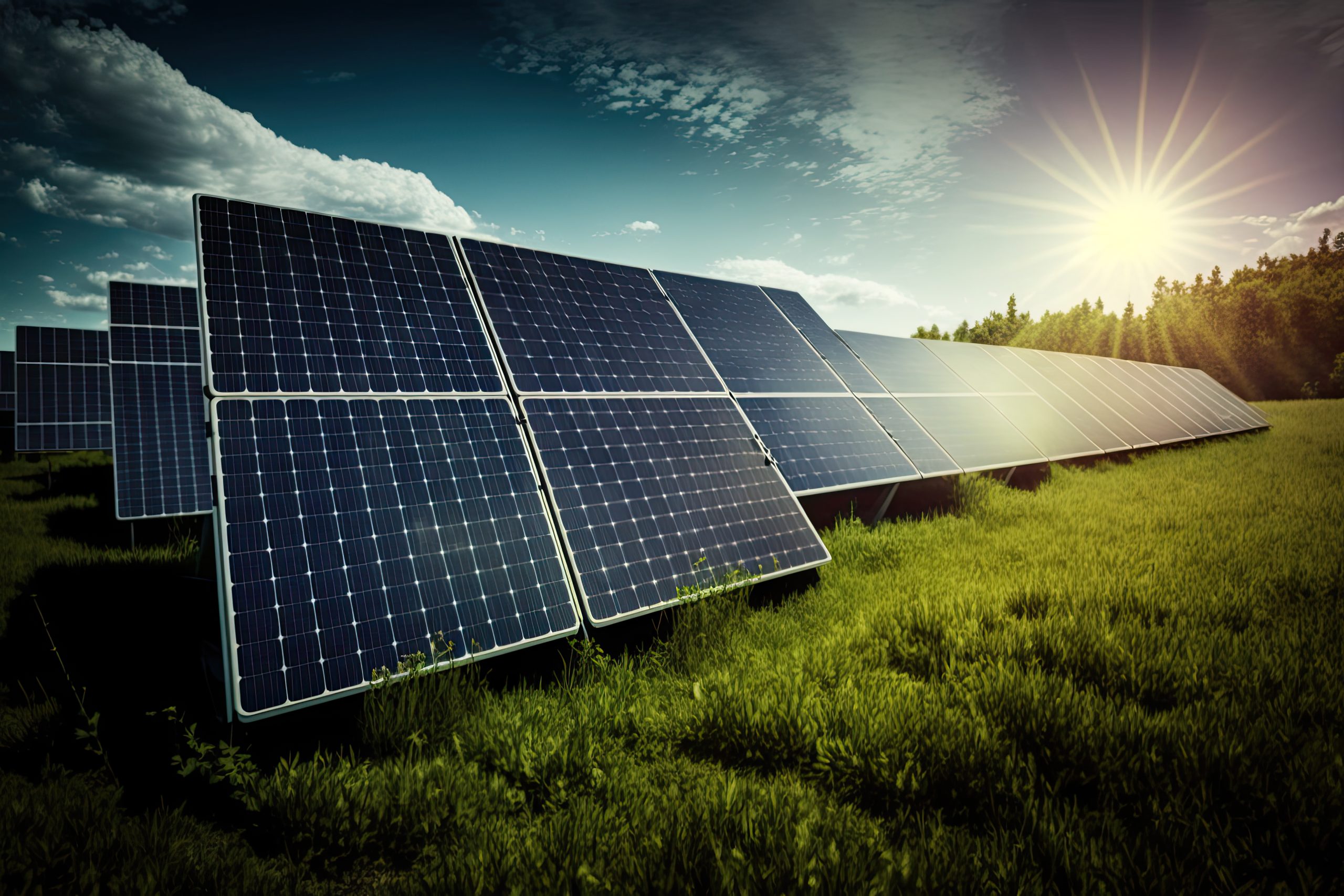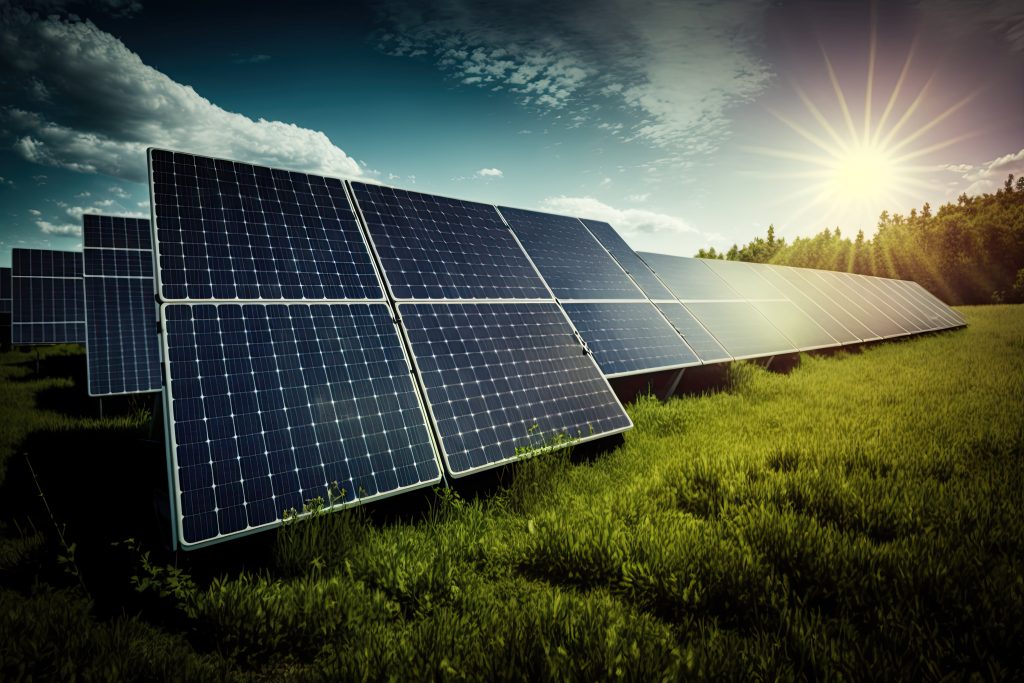
03 May How Solar Energy is Accelerating Development: An Expert Analysis
As the world increasingly moves towards renewable energy solutions, solar energy has emerged as one of the most transformative technologies for development. In regions with high energy demand but limited access to reliable electricity, solar energy is becoming a crucial tool for powering homes, businesses, and communities. In this expert analysis, we explore how solar energy is accelerating development, with a focus on its impact on various sectors in Kenya.

The Role of Solar Energy in Economic Development
Solar panel energy plays a pivotal role in driving economic development by providing a reliable, cost-effective power source. Unlike traditional power grids that rely on extensive infrastructure and often suffer frequent power outages, solar power offers a flexible solution for both urban and rural areas. This flexibility plays a crucial role in developing economies like Kenya, where many remote regions still lack reliable access to electricity.
Solar energy reduces the cost of power, enabling businesses to operate more efficiently and boosting productivity. Additionally, businesses in off-grid areas can now access power without the need for expensive and unreliable diesel generators. This is allowing small businesses to thrive, which is essential for the growth of Kenya’s entrepreneurial landscape.
Solar Energy’s Impact on Education and Healthcare
Access to electricity has long been a challenge for many schools and healthcare facilities in rural Kenya. Solar power is helping bridge this gap, enabling educational institutions to provide better learning environments. Solar-powered lights allow students to study after dark, while solar-powered technology enhances the learning experience with tools like computers and internet access. Schools can also reduce power costs by switching to solar systems, freeing up funds for other essential resources.
In the healthcare sector, solar power is playing an even more critical role. Many health clinics in rural Kenya operate without reliable access to electricity, hindering the ability to provide essential services. Solar power ensures that healthcare facilities have reliable lighting, refrigeration for medicines, and power for medical equipment. This is crucial in ensuring that medical services are available 24/7, even in remote regions.
Solar Energy’s Environmental Benefits
Solar energy is widely recognized for its environmental benefits. Unlike fossil fuels, which release harmful pollutants and greenhouse gases into the atmosphere, solar energy is clean, renewable, and has no emissions. For Kenya, reducing reliance on traditional biomass energy sources such as firewood and charcoal is particularly important in the fight against deforestation and air pollution.
The use of solar power also significantly reduces the carbon footprint of communities and businesses, helping the country meet its climate change mitigation goals. As Kenya seeks to reduce its greenhouse gas emissions in line with international commitments, solar energy is a key part of the solution.
Spenomatic Solar’s Role in Advancing Solar Energy
Spenomatic Solar has been a key player in advancing solar energy solutions across Kenya. As part of the Spenomatic Group commitment to providing solar solutions, the company has had a significant impact on both urban and rural communities. With a focus on affordability and sustainability, Spenomatic Solar offers tailored solar solutions that meet the unique power needs of Kenyan households and businesses.
Spenomatic Solar also plays an essential role in promoting solar power through its flexible financing options, making it easier for homeowners and entrepreneurs to invest in solar systems without a heavy financial burden. By offering personalized consultations, expert installation services, and ongoing support, Spenomatic Solar ensures that solar power remains an accessible and reliable power source for all.
Key Challenges and Opportunities
While solar holds immense potential, there are still several challenges that need to be addressed. One of the primary challenges is the high initial cost of solar systems, which can be a barrier for many households and businesses. However, the decline in the cost of solar panels, along with the availability of financing options, is helping to mitigate this issue.
Another challenge is the need for improved infrastructure and skilled professionals in the solar power sector. To ensure that solar systems are installed and maintained correctly, it is essential to invest in training and capacity building for local technicians and installers.
Despite these challenges, the future of solar power in Kenya looks promising. With continued investment in technology, infrastructure, and education, solar power can help accelerate development and improve the quality of life for millions of Kenyans.
Conclusion
Solar energy is undeniably accelerating development in various sectors, from education and healthcare to rural development and environmental sustainability. As the world moves towards cleaner, more sustainable energy solutions, solar power stands out as a game-changer, particularly for developing economies like Kenya. With companies like Spenomatic Solar leading the charge, the future of solar in Kenya looks bright, offering vast opportunities for economic growth, improved living standards, and a cleaner environment.
FAQs
1. How does solar contribute to economic development in Kenya?
Solar energy provides a reliable and cost-effective power source, enabling businesses to reduce operational costs and improve productivity. It also supports rural development by providing off-grid communities with access to electricity, fostering economic growth.
2. What are the environmental benefits of using solar?
Solar energy helps reduce greenhouse gas emissions, lower air pollution, and combat deforestation. By shifting from fossil fuels to solar power, Kenya can significantly reduce its carbon footprint and contribute to global climate change mitigation efforts.
3. How can solar energy improve access to education in rural Kenya?
Solar energy enables schools to provide better learning environments by powering lights and technology. It also reduces the reliance on kerosene lamps, which are both expensive and harmful to health, making education more accessible to rural communities.
4. What role does Spenomatic Solar play in the solar energy sector?
Spenomatic Solar provides tailored solar solutions to both urban and rural communities, helping to make solar energy more accessible and affordable. Our flexible financing options and expert installation services ensure that customers receive high-quality, sustainable energy systems.
5. How can I get started with solar energy in my home?
To get started, evaluate your power needs and consider consulting with solar energy providers like Spenomatic Solar. We offer personalized consultations and can help you choose the right solar system for your home, ensuring maximum efficiency and savings.


WilliamHeats
Posted at 20:19h, 26 AugustКак подчёркивает врач-нарколог клиники «Крылья Надежды» Андрей Кузьмин: «Своевременное обращение к специалистам гарантирует не только быстрое восстановление, но и предупреждает развитие тяжёлых осложнений, которые могут навсегда изменить жизнь пациента».
Подробнее – https://vyvod-iz-zapoya-korolev2.ru/